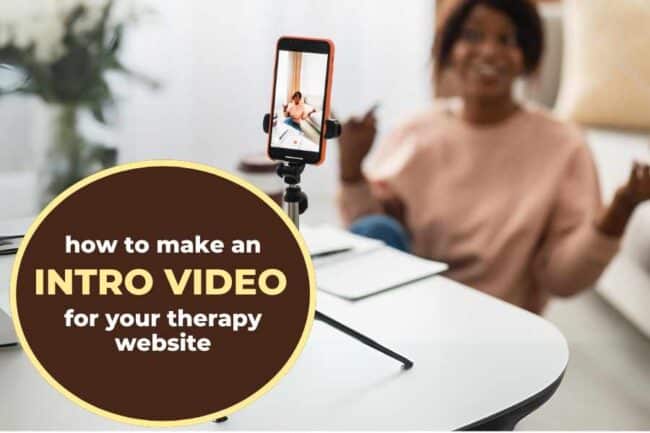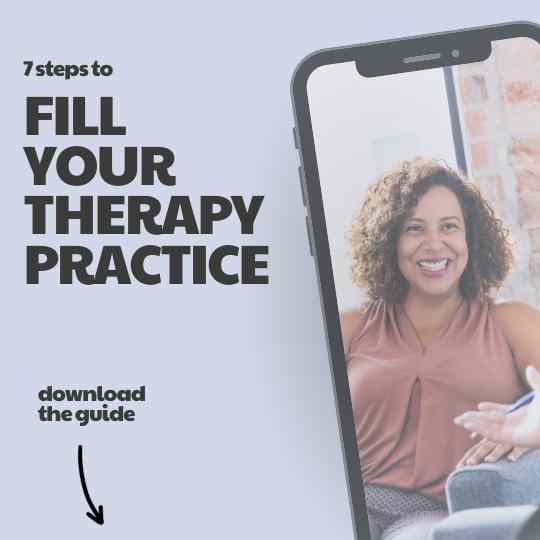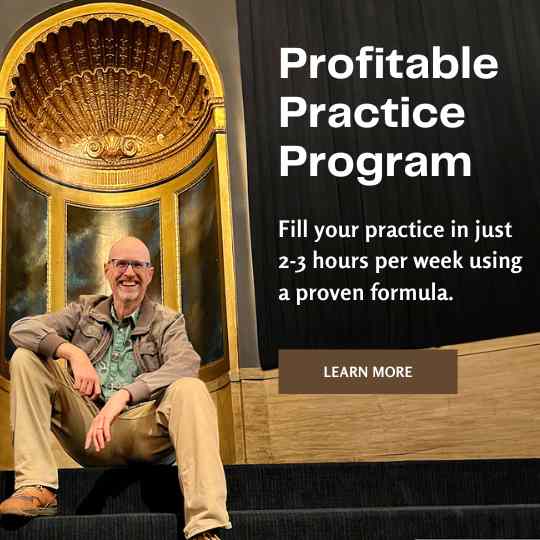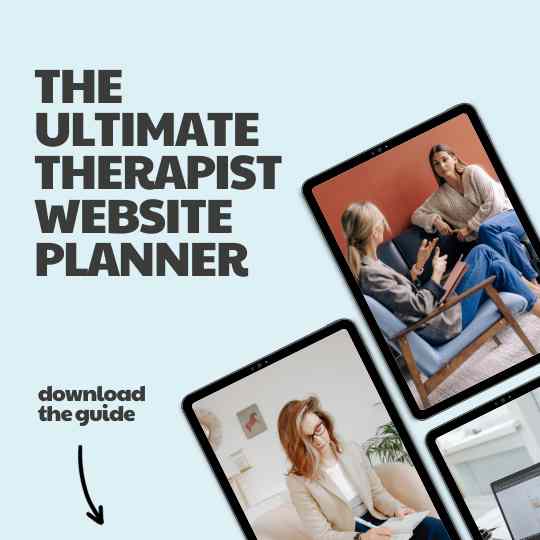To get more clients and stand out in a busy online crowd, your content needs to follow this time-tested formula:
- Be engaging
- Be authentic
- Be creative
- Be honest
- Be inspirational
- Be vulnerable
- Be consistent
- Be you
Personal branding is more than a logo
In the simplest terms, a personal brand is how you promote yourself. It’s what people say about you after you leave the room. Effective personal branding evokes an emotion and a response. It encapsulates your essence and weaves it into everything you do online.
Inspire people to know, like, and trust you
Get more clients without being “salesy”
Figure out who you want to serve. What keeps your dream client up at night? How can you make their lives better – even if they never reach out? Be a teacher instead of a salesperson. That’s what makes people excited to see your content in their feed.
Share your authentic story
You already are a personal brand. Think of all the identities you’ve created over the years. These are the tapestry of your life. Childhood. Business. Passion. Hobbies. Family. Travel. Art. Communities. Philanthropy. — These are the stories waiting to be told.
Provide value without any hint of a sale
There’s a fine balance between your self-promotion and the value you share with the world. Keeping the scale tipped to the side of “giving back” is essential to having a personal brand that people relate to and want to support.
Attract your dream life and business
Work from anywhere. Create financial freedom. Have time to relax. These are common dreams of many personal brands. But, how do you actually make that happen? Why do some people have huge success while others spin their wheels and get nowhere? It’s all about how you position yourself online.
Grow your brand and grow your self
An effective, authentic personal brand focuses on self-awareness and personal development. By honestly and openly sharing your transformation online, you become a beacon of light in a doldrum social media world. When you go at it from that approach, the law of attraction demands that success will find you.
If you’re a therapist looking to stand out in a crowded market, developing a personal brand is an essential step. Personal branding allows you to differentiate yourself from other therapists and establish a unique identity that resonates with potential clients. By building a strong personal brand, you can attract more clients, build trust and authority, and establish yourself as a thought leader in your field.
Developing Your Personal Brand To develop your personal brand, start by defining your unique value proposition. What makes you different from other therapists? What are your core values and beliefs? What are your areas of expertise? Once you have a clear understanding of your personal brand, you can start to develop your messaging and visual identity.
Establishing Online Presence In today’s digital age, having a strong online presence is crucial for any therapist. Your website, social media profiles, and online directory listings should all reflect your personal brand and be designed to attract potential clients. By building a strong online presence, you can increase your visibility and reach a wider audience.
Key Takeaways
- Developing a personal brand is essential for therapists looking to stand out in a crowded market.
- Defining your unique value proposition and establishing a strong online presence are key components of personal branding.
- Building trust and authority, and establishing yourself as a thought leader, are some of the benefits of a strong personal brand.
Developing Your Personal Brand
What is a Personal Brand?
A personal brand is the unique combination of skills, experiences, and personality traits that differentiate you from other therapists. It is the impression that you leave on your clients, colleagues, and the community. Your personal brand is what makes you stand out from the crowd and creates an emotional connection with your audience.
Understanding Personal Branding for Therapists
Personal branding for therapists is the process of creating a professional identity that reflects your unique approach and authentic self. It involves crafting a narrative that communicates your values, mission, vision, and personality. Personal branding helps you establish a strong online presence, attract the right clients, and build trust and credibility in your field.
Crafting Your Professional Identity
Crafting your professional identity is the first step towards developing your personal brand. Start by defining your unique approach to therapy, your areas of expertise, and your target audience. Identify what sets you apart from other therapists and what value you can offer to your clients. Use this information to create a strong and consistent message across all your marketing channels, including your website, social media profiles, and business cards.
Defining Your Brand Values and Mission
Defining your brand values and mission is essential to developing a strong personal brand. Your values are the guiding principles that define who you are and what you stand for. Your mission is the purpose that drives your work and inspires you to make a difference in the lives of your clients. Use your values and mission to create a powerful brand message that resonates with your target audience and reflects your authentic self.
In conclusion, developing your personal brand is a crucial step towards establishing yourself as a successful therapist. By crafting a professional identity that reflects your unique approach and authentic self, you can attract the right clients, build trust and credibility, and make a positive impact in your field.
Establishing Online Presence
As a therapist, establishing an online presence is crucial for building your personal brand. In today’s digital age, having an online presence can help you reach a wider audience and connect with potential clients. Here are some ways to establish a strong online presence:
Creating a Professional Website
One of the most important aspects of your online presence is your website. Your website is your digital storefront and is often the first impression potential clients will have of you. It is essential that your website is professional, easy to navigate, and visually appealing.
Consider hiring a professional website designer to create a custom website that reflects your brand identity. Your website should include information about your services, your qualifications, and your contact information. Make sure your website is mobile-friendly, as many people access the internet through their smartphones.
Leveraging Social Media Effectively
Social media platforms such as Facebook, Twitter, and Instagram can be powerful tools for building your personal brand. However, it’s important to use social media effectively and strategically. Choose platforms that your target audience is most likely to use and create a consistent brand message across all platforms.
Use social media to share information about your services, post updates about your practice, and engage with your followers. Consider running targeted ads on social media to reach a wider audience.
Content Marketing and Blogging
Creating and sharing valuable content is a great way to establish yourself as an authority in your field and build your personal brand. Consider starting a blog where you can share your thoughts and insights on topics related to mental health.
Use your blog to share helpful tips, advice, and resources with your audience. Share your blog posts on social media to drive traffic to your website and increase your visibility.
In conclusion, establishing an online presence is essential for building your personal brand as a therapist. By creating a professional website, leveraging social media effectively, and sharing valuable content, you can establish yourself as an authority in your field and attract more clients to your practice.
Building Trust and Authority
As a therapist, building trust and authority with your potential clients is crucial to the success of your private practice. By showcasing your expertise and engaging with the community, you can establish yourself as a reputable and knowledgeable therapist that clients can trust. Here are some ways to build trust and authority in your personal branding:
Sharing Expertise Through Various Channels
One way to demonstrate your expertise and build trust with potential clients is by sharing your knowledge through various channels. This can include writing blog posts, creating podcasts or videos, or speaking at events. By sharing your insights and expertise, you can position yourself as a thought leader in your field and establish yourself as an authority figure.
Engaging with the Community and Potential Clients
Engagement with the community and potential clients is another key way to build trust and authority. This can be done through social media, attending local events, or hosting your own events. By engaging with the community and potential clients, you can show that you care about their needs and are committed to helping them.
Showcasing Testimonials and Success Stories
Sharing testimonials and success stories from past clients is a powerful way to build trust and authority. By showcasing the positive experiences that others have had with your services, you can demonstrate your expertise and build credibility with potential clients. This can be done through your website, social media, or other marketing materials.
Overall, building trust and authority is a critical component of personal branding for therapists. By sharing your expertise, engaging with the community, and showcasing your success stories, you can establish yourself as a reputable and knowledgeable therapist that clients can trust.
Visual Identity and Marketing Materials
When it comes to personal branding for therapists, designing a distinct visual identity is crucial. Your visual identity includes your logo, design elements, fonts, and colors, all of which should be consistent across all marketing materials.
Designing a Distinct Logo and Visual Elements
Your logo and visual elements are the face of your personal brand. They should be unique, memorable, and reflective of your personality and therapeutic approach. Consider hiring a professional designer to create a logo and other visual elements that accurately represent your brand. However, a custom logo maker can help you to significantly enhance your brand’s visibility and make a lasting impression on potential clients without design skills.
When designing your logo and visual elements, consider the following:
- Use colors that convey the feelings and emotions you want to evoke in your clients.
- Choose fonts that are easy to read and reflect your brand personality.
- Incorporate design elements that are unique and reflective of your therapeutic approach.
Consistency Across Marketing Platforms
Consistency across all marketing platforms is key to building brand recognition. Your website, social media profiles, business cards, and other marketing materials should all have a consistent look and feel.
To ensure consistency across all marketing platforms, consider the following:
- Use the same logo, fonts, and colors on all marketing materials.
- Use consistent language and messaging across all marketing materials.
- Ensure that your website and social media profiles are visually consistent with your other marketing materials.
By designing a distinct visual identity and ensuring consistency across all marketing materials, you can establish a strong personal brand that resonates with your clients and sets you apart from other therapists.
Frequently Asked Questions
How can therapists effectively establish their brand identity?
Establishing a brand identity as a therapist requires a clear understanding of your values, strengths, and unique approach to therapy. Start by defining your target audience and the services you offer. Then, craft a brand message that resonates with your ideal clients. Use consistent visual elements, such as a logo, color scheme, and typography, to create a cohesive brand identity that reflects your personality and style.
What are some proven strategies for therapists to promote themselves?
There are several effective strategies that therapists can use to promote themselves, including networking with other professionals in the field, speaking at conferences or events, creating informative blog posts or videos, and offering free consultations or workshops. Additionally, consider joining professional organizations or online communities to connect with potential clients and build your reputation as an expert in your field.
What are the essential elements to include on a therapist’s website?
A therapist’s website should include essential elements such as a clear and concise description of your services, contact information, and a professional headshot. Additionally, consider including testimonials from satisfied clients, a blog or resource section, and a call-to-action to encourage potential clients to contact you.
How can a therapist discover and define their unique niche?
To discover and define your unique niche, consider your background, training, and interests. Think about the specific types of clients you enjoy working with and the issues you are most passionate about addressing. Conduct market research to identify gaps in the market and opportunities to differentiate yourself from other therapists in your area.
What are the best practices for creating a personal brand as a therapist?
The best practices for creating a personal brand as a therapist include defining your target audience, creating a clear and concise brand message, using consistent visual elements, and providing valuable content to your audience. Additionally, focus on building trust and credibility with potential clients by sharing your professional qualifications, experience, and success stories.
How can a therapist leverage social media for personal branding purposes?
Social media can be an effective tool for therapists to build their personal brand and connect with potential clients. Start by identifying the social media platforms your target audience is most active on, such as Facebook, Instagram, or LinkedIn. Then, create a content strategy that includes informative blog posts, engaging visuals, and calls-to-action to encourage engagement and drive traffic to your website. Be sure to engage with your followers and respond to comments and messages in a timely manner to build trust and credibility.




















